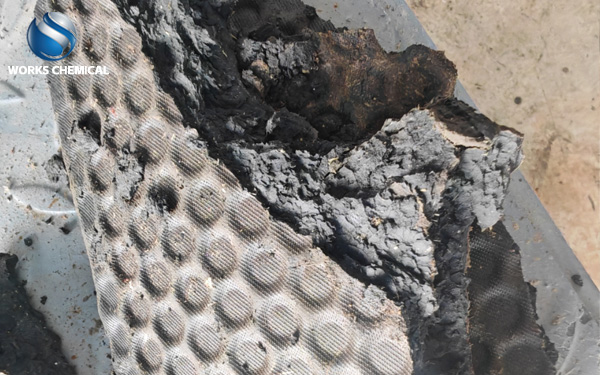
In the process of urban sewage treatment, the treatment of municipal sludge has always been a headache-inducing problem, among which the issue of excessively high moisture content in sludge is particularly prominent. Municipal sludge with a high moisture content not only brings great inconvenience to subsequent transportation and disposal, but also increases treatment costs and exerts certain pressure on the environment. The emergence of sludge enhancers has provided an effective solution to this problem.

The current situation and hazards of high moisture content in Municipal sludge
Municipal sludge is a by-product of sewage treatment, and its water content is usually very high, generally reaching 80% to 95%. Such a high moisture content makes the sludge volume huge, and a large amount of energy and vehicle resources are consumed during transportation, increasing the transportation cost. Moreover, in the sludge disposal process, sludge with a high moisture content is difficult to be treated by conventional methods such as incineration and landfill. If incineration is carried out, a large amount of auxiliary fuel will be consumed to maintain the combustion temperature. If landfill is carried out, it will lead to a rapid reduction in the landfill's storage capacity and may also cause problems such as leachate pollution.
The working principle of sludge enhancers
Sludge enhancer is a kind of chemical agent specially developed for sludge treatment. It mainly works by altering the charge properties and structure on the surface of sludge particles, disrupting the stability of sludge colloids, and enabling the water in the sludge to be released more effectively. Specifically, the active ingredients in the sludge enhancer can undergo neutralization reactions with the negative charges on the surface of sludge particles, reducing the electrostatic repulsion between particles and promoting the aggregation of sludge particles to form larger flocs. At the same time, it can also improve the dewatering performance of sludge, reduce the specific resistance of sludge, and make it easier for water to separate from sludge.
The remarkable effect of sludge enhancers in reducing moisture content
Improve dehydration efficiency
In practical applications, the use of sludge enhancers can significantly enhance the dewatering efficiency of sludge. Take a certain municipal sewage treatment plant as an example. Before using the sludge enhancer, the plant adopted the traditional mechanical dewatering method, and the moisture content of the sludge after dewatering was still around 80%. After the introduction of the sludge enhancer and the same dewatering process, the moisture content of the sludge was reduced to below 65%, and the dewatering efficiency was significantly improved.
Enhance the strength of sludge flocs
Sludge enhancers can not only reduce the moisture content of sludge but also enhance the strength of sludge flocs. During the dewatering process, strong sludge flocs can better maintain structural integrity, reduce breakage under the action of squeezing and shearing forces, and thereby further enhance the dewatering effect. Moreover, sludge flocs with higher strength are more stable during subsequent transportation and disposal, and are less likely to disintegrate or leak.
Adapt to various sludge properties
The properties of different types of municipal sludge may vary significantly, such as organic matter content, particle size, pH value, etc. Sludge enhancers have good adaptability and can play an effective dewatering role for sludge of different natures. Whether it is activated sludge rich in organic matter or primary sedimentation sludge mainly composed of inorganic matter, sludge enhancers can achieve ideal dewatering effects by adjusting their formulas and dosages.
To sum up, in the face of the problem of high moisture content in municipal sludge, sludge enhancers are undoubtedly an effective solution. It has brought significant environmental and economic benefits to the treatment of municipal sludge through its advantages such as improving dewatering efficiency, enhancing the strength of sludge flocs, and adapting to various sludge properties. Therefore, it is recommended that sludge enhancers be widely used in municipal sludge treatment to achieve the reduction, harmless treatment and resource utilization of sludge.